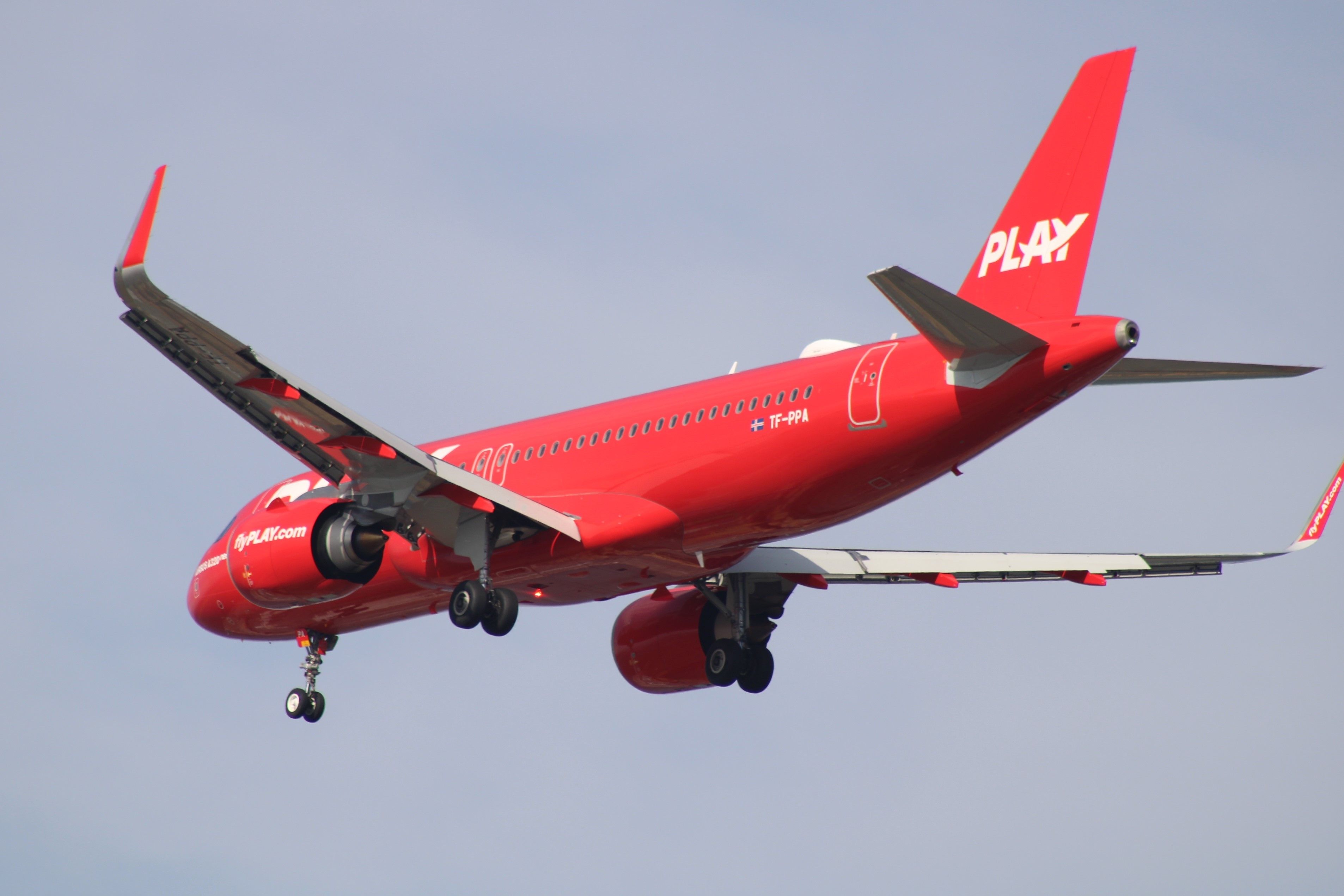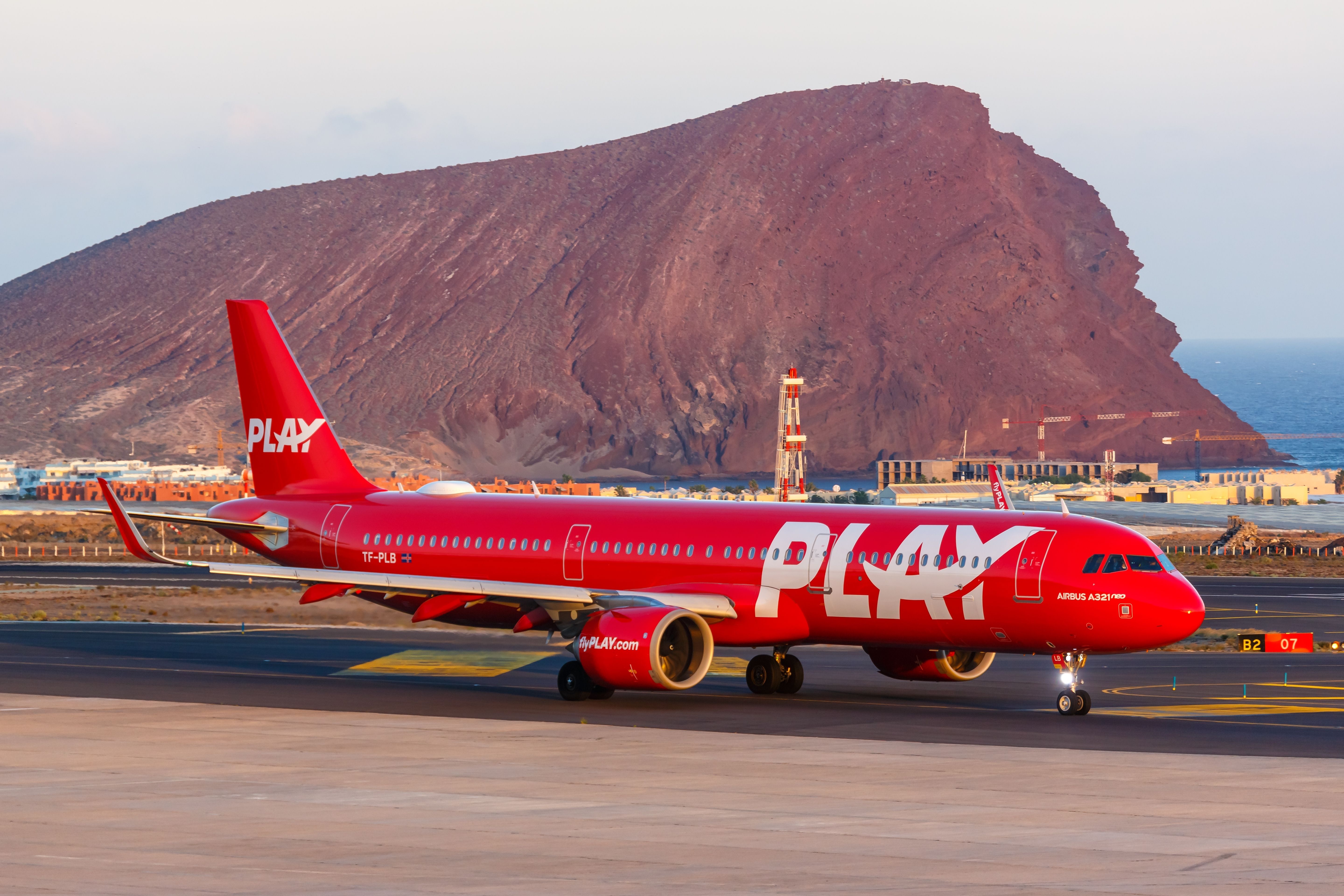Summary
- PLAY Airlines integrated iPort’s airport solutions for operational efficiency and enhanced passenger experience.
- The integration process took 16 weeks, focusing on DCS, kiosk and bag drop systems, and security messaging.
- CEO Einar Örn Ólafsson prioritizes operational efficiency over expansion since taking over in April 2024.
PLAY Airlines has completed incorporating iPort, a leading airport solutions provider, into its network to enhance the passenger experience and the airline’s operational efficiency on the ground.
The integration process
The integration of new provider services uses iPort’s departure control system (DCS) to streamline airport operations, including check-in. This partnership includes more than 20 airports across PLAY’s network, including those in Europe, Canada, and the United States.
Photo: The Global Guy | Shutterstock
The integration process began in April 2024 and took 16 weeks to complete. During this time, several critical tasks were accomplished, including the implementation of iSales and PSP validations, the setup of Internet check-in through iSales, the certification and deployment of kiosks, the installation of bag drop systems, and the configuration and certification of security messaging for the US and Canada with third-party reservation system providers.
Commenting on the news, the director of ground operations at
PLAY airlines
, Guðbergur Ólafsson, said:
“We’re glad to partner with iPort to increase operational efficiency, compliant with government regulations regarding passenger data delivery. This will contribute to the smooth check-in experience with PLAY Airlines, creating the pleasant journey our customers signed up for.”
Meanwhile, the CEO at iPort, Hans van Engelen, added that the Icelandic carrier’s integration “into the iPort community represents a major achievement for both parties.”
PLAY’s US network
PLAY Airlines currently operates a transatlantic network serving four US destinations. As a result, the new partnership, which seeks to enhance ground services, will also impact US airports and passengers traveling with PLAY from these locations.
Below is the budget carrier’s US network, operated from its primary hub at Reykjavík Keflavik International Airport (KEF):
- KEF to New York Stewart International Airport (SWF)
- KEF to Boston Logan International Airport (BOS)
- KEF to Baltimore/Washington International Thurgood Marshall Airport (BWI)
- KEF to Washington Dulles International Airport (IAD)
Currently, the Icelandic airline operates a fleet of ten aircraft, consisting of six Airbus A320neos and four Airbus A321neos. PLAY typically deploys its higher-density A321neos on routes to New York and Boston, while the A320neos are used on routes to Washington.
Photo: Markus Mainka | Shutterstock
According to ch-aviation data, PLAY’s A320s can seat up to 174 passengers in a single-class cabin configuration. Meanwhile, its A321neos accommodates 214 passengers.
Prioritizing operational efficiency
Since April 2024, when new CEO Einar Örn Ólafsson took over, the airline has shifted its focus from expansion to prioritizing operational efficiency and financial performance. Ólafsson is the airline’s second CEO, succeeding Birgir Jónsson, who has led the company since its launch in 2021. Before becoming CEO, Ólafsson served as the chairperson of the board.
Since taking over, he has emphasized that his primary goal is to make the airline profitable, something it has yet to achieve. In its first-quarter investor presentation, PLAY expressed hopes of breaking even in 2024 and achieving profitability by 2025.


